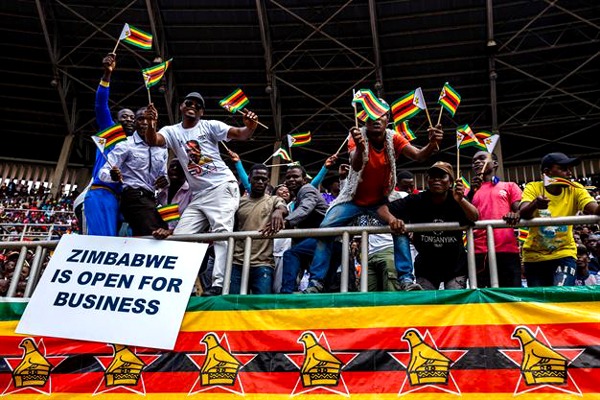
WAS the liberation struggle fought in vain in Zimbabwe? Would life have been better for the average Zimbabwean today if the war for Uhuru had never been waged? Nobody can provide precise answers to these questions, but they are worth considering.
By Alois Mukonyora, Our Reader
As has become the norm over the past two decades, the majority of citizens commemorated the country’s 40th birthday with sadness, indifference and a terrible ache for something that might have been.
The thousands of young men and women who sacrificed life and limb for the ideal of a free and prosperous Zimbabwe certainly did not envisage the current grim realities confronting the masses.
Since the turn of the century, the powers-that-be have been quick to blame economic sanctions imposed by the West for our misery, but a closer look at our internal affairs since 1980 reveals a breathtaking series of own goals that even a determined enemy would have found hard to score.
The early 1980s saw the notorious 5 Brigade military unit being unleashed on the people of Matabeleland and parts of the Midlands provinces in a campaign known as Gukurahundi. It soon became clear that the campaign had nothing to do with crushing “dissidents”, as claimed by the State, but had everything to do with wiping out Joshua Nkomo’s Zapu as an opposition party. Estimates peg civilian lives lost at 20 000.
Gukurahundi was the first self-inflicted blow the newly independent nation suffered. The then Prime Minister, the late former President Robert Mugabe, much later described this episode as a “moment of madness”, but he fell short of acknowledging the State’s role in the massacres. And, of course, he never apologised.
The 1990s saw a nosedive in the country’s economic fortunes, forcing the government to appeal to the International Monetary Fund (IMF) for a rescue package. Influential voices, particularly the Zimbabwe Congress of Trade Unions (ZCTU) led by the now late MDC founder Morgan Tsvangirai, lobbied the government against the move, but they were simply ignored.
- Chamisa under fire over US$120K donation
- Mavhunga puts DeMbare into Chibuku quarterfinals
- Pension funds bet on Cabora Bassa oilfields
- Councils defy govt fire tender directive
Keep Reading
The IMF package, code named Economic Structural Adjustment Programme, brought untold suffering as it was accompanied by massive job losses and drastic cuts to funding for social services.
This over-reliance on foreign-authored solutions, instead of home-grown remedies, was another own goal.
Then, in 1998, Zimbabwe got embroiled in a needless, wasteful civil war in the Democratic of the Republic of Congo (DRC). Critics pointed out that DRC does not share a border with Zimbabwe, and neither had the latter received any assistance from that troubled country during the liberation struggle. In addition, the decision to deploy the troops was taken without Parliament’s knowledge, let alone approval.
In the end, the country lost hundreds of millions of dollars in a war only a privileged few fully understood. Zimbabwean troops were eventually withdrawn in 2002, but the toll in terms of dollars as well as body count is unknown to the public, whose tax dollars financed the DRC adventure.
Towards the end of the second decade of Uhuru, discordant voices grew louder, forcing government to embark on a constitutional reform exercise. In February 2000, a referendum on the draft Constitution was called, and for the first time since 1980, the government lost in an electoral contest.
Sensing defeat in the upcoming parliamentary plebiscite in June of the same year, Zanu PF embarked on a violent land reform programme which saw productive white farmers being uprooted from their enterprises and getting replaced by black new farmers.
Admittedly, thousands of formerly landless benefited, but the economic devastation caused by the land reform is still being felt to date. Indeed, the way the land reform programme was handled can frankly be taken as the most disastrous policy decision taken by the post-independence government.
After losing the constitutional referendum, Mugabe cynically announced that since the people had rejected the new draft, it meant they were content with the old Constitution.
This position suited him just fine, for the Lancaster House Constitution, amended a record 17 times in his favour, awarded him immeasurable powers. Indeed, the old Constitution continued to be abused by the old man until 2013 when the country voted for a new Constitution. The failure by Zimbabwe at large to hammer out a justiciable Constitution early on in the independence years will forever be a missed opportunity in the country’s history.
Over the years, it became clear that it was virtually impossible to remove Mugabe from power through democratic means. In his own party, he intimidated and whipped dissenting voices into line. In national elections, he shamelessly manipulated the process to make himself the only candidate who could possibly win. In the latter shenanigans, he was ably backed by the State security apparatus who could be depended upon to use violence when all else failed.
Ironically, it was the same military which toppled him in a soft coup in November 2017, and the whole nation reverberated with celebrations. It felt like a new dawn of independence. But we celebrated too soon.
It soon became clear that the “new dispensation” which took over was merely old wine in new wineskins.
The same corrupt elite who ran the show in Mugabe’s day are still firmly in place, the country is still as disunited as ever and hunger and poverty continue to stalk the land.
So, on its 40th birthday, the adage that life begins at 40 rings hollow for Zimbabwe. The country persists in a rut as it replays its tale of misery like an old record.
Until there is a clean break from the past spearheaded by brave men and women of integrity, the future remains grim. Independence commemorations will continue to be meaningless for the majority.











